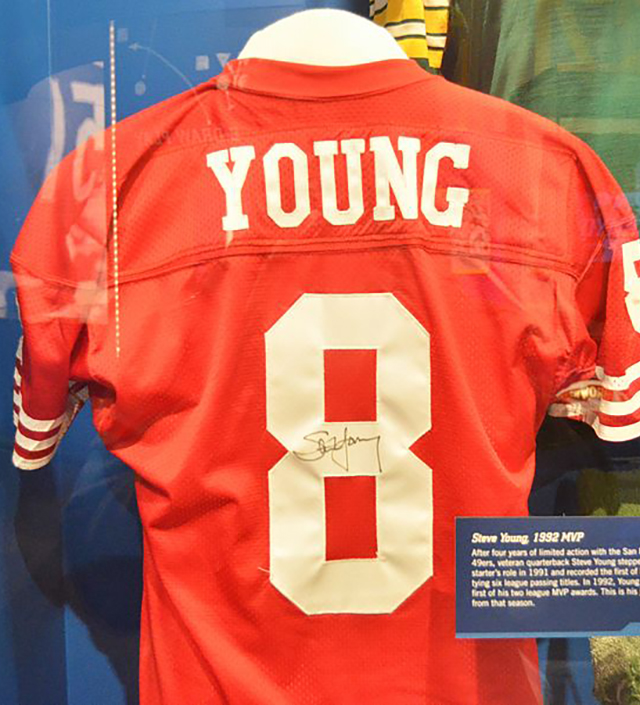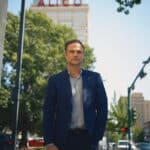Former quarterback Steve Young may be best known for his 18 years playing football, mostly for the San Francisco 49ers, but what he has accomplished since then is also impressive. He’s the president and co-founder of HGGC, a leading middle-market private equity firm with $5.4 billion in cumulative capital commitments. He also founded and co-chairs a global children’s charity and is an actively involved father of four.
Young participated yesterday afternoon in a Q&A webinar, “Living Your Second Half,” hosted by Merit Financial Advisors and moderated by Rick Kent, Merit’s founder and CEO. Young, inducted into the Pro Football Hall of Fame in 2005, has a minority investment in the Alpharetta, Ga.-headquartered RIA firm. Rethinking65 attended the webinar and here are our takeaways:
Have a Plan
Young didn’t recognize the importance of this as a rookie, but he appreciates it now.
“It was my father, Grit Young, who told me for years that I needed to plan for the full measure of my life, not just a dream of playing football.”
“It was my father, Grit Young, who told me for years that I needed to plan for the full measure of my life, not just a dream of playing football,” said Young. That’s why he started law school at Brigham Young University (BYU) in 1988, several years into his professional football career. He attended law school during winter semesters and across the three Super Bowls he played in with the 49ers, he said.
When he graduated law school, it was “mostly because my dad kept badgering me about what I didn’t even think about at the time,” he said. “ I thank my dad because it got me ready for the second half.”
Be Patient and Persistent
During his football career, “there were so many moments that were just like forks in the road,” said Young, and some of those forks were chosen for him. For example, when he arrived at BYU as an undergraduate, “I was the eighth string quarterback,” he said. During his first semester, offensive coordinator Doug Scovil “pulled me aside and said, ‘By the way, I don’t coach lefties.’ I was like, whoa, I can’t throw the ball righty.” So Young moved to defense but kept throwing.
When Ted Tollner replaced Scovil and saw Young, he asked him why he wasn’t playing quarterback anymore. Young told Tollner the lefty story (“He said, ‘That’s stupid.’”) and Tollner brought him back.” But that moment, like others in his life, had “created the space for me to have success,” he said, and helped him recognize the difference between situations he could and couldn’t control.
Be Confident and Positive
Early on, Young struggled in the shadow of 49er teammate Joe Montana. “He was Tom Brady before Tom Brady. He was Michael Jordan before Michael Jordan. He was the king. And then there was me,” he said. Young worried so much about not being as successful, especially in the beginning, that “I had driven myself into a pit of despair and depression, and misery,” he said.
His turning point was a chance meeting on an airplane with Stephen Covey, author of the Seven Habits books. Young, who had never met Covey before, poured out all his fears and concerns and Covey, after asking him a few questions about the team, told him, “I don’t know that I‘ve ever seen a better opportunity to see how good you can get,” said Young. “He just turned the whole thing on its axis and created a space where I could think about it in a positive way.”
Find a Mentor
Young’s father, LeGrande “Grit” Young, a lawyer who had also played football for BYU, was one of his mentors. Another is former Dallas Cowboys quarterback Roger Staubach. Young grew up with a big poster of Staubach on his wall that his mother bought him one Christmas. He learned how to throw by positioning his fingers the way Staubach held the ball, he says, and he decided he wanted to run and talk like Staubach when he saw him on TV. They met and became friends after Young started playing professional football.
“Now he’s a good friend,” said Young. “We can chat about anything, and that’s an amazing story that he started off as a poster on my wall and then ended up being a role model throughout my life, personally.” He added that Staubach “had the Hall of Fame first half, and he has the most successful second half, with Staubach Company, of anybody that ever played.” The Staubach Company, a global real estate advisory firm, merged with Jones Lang LaSalle in 2008.
Be a Team Player and Leader
“I’ve spent a lot of my second half talking about how to make teams work,” said Young, who is 59. The larger the team is, the more complex it is, he said, and “quarterback, you know, is the most focused position in sports, with the least amount of control.” As a quarterback, he had to figure out how to get the offensive linemen “to fight and give every inch of themselves,” he said, so he could be credited with the team’s victories. “I had to learn some tough lessons,” he said. The big ones, accountability and integrating as a team, are the next two points.
Be Accountable
“Every time I threw an interception, I wanted to list all the mitigating circumstances that led to this terrible thing that I had done,” said Young, such as “you turned the wrong way and you didn’t block your guy, and all these things were true.” However, “that was a very immature way to do it, and it does not build teams,” he said. What was more effective was to say, “I screwed up. And now I’m going to fix it. Come along with me,” he said — and they did. Accountability has served him well throughout his life, he said, including when he forgets to pick up items at the grocery store that his wife of 21 years asks him to bring home.
Integrate and Bond
Young stressed the importance of spending time with other people and getting to know their unique qualities. Bill Walsh, the late head coach of the 49ers, talked about this a lot and “he was constantly trying to get us away from our club, our comfort zone of hanging out with only quarterbacks or hanging out with only offensive players,” he said, because this would be helpful in key moments of the season when they needed to play as a team.
“Bonding to see other people more deeply is a vital piece to great teams and that’s true in football, it’s true in marriage, it’s true in business, it’s true on the street,” said Young. “It doesn’t need to be love. It can be a sense of appreciation, a sense of respect, a sense of understanding, a sense of a ‘walk in your shoes’ kind of way to think about the world.”
Invest in People
“Whenever we invest and partner with anyone we underwrite, we diligence the people first, the company second,” said Young. “We invest in people.” Again, it all comes down to relationships.
“The first half of your life is always a value, but if you hang around that, you won’t get where you want to get.”
Look Ahead
When Young retired from football, “the biggest challenge I had transitioning was to recognize that it was done,” he said. “Roger Staubach gave me the best advice ever,” which was to move forward and leave the past behind. “He said, you’ll never be able to not talk about it, it never won’t be not important in your life, but run away,” said Young.
“The first half of your life is always a value,” said Young, “but if you hang around that, you won’t get where you want to get.” He also spoke about the importance of paying attention to one’s mental health, peace and balance.
Pay it Forward
“When I started to play professional football, I thought to myself, ‘Oh my gosh, I’ve become Roger Staubach … someone might have a poster of me up on their wall.’” So he started thinking that he needed to “pay it forward” and be a role model for the next generation. “In many ways, you never will know the impact you have, but to say it’s not there is foolishness,” he said.
“It takes a village to raise a kid,” said Young, who founded his Forever Young Foundation in 1993. It serves children facing significant physical, emotional and financial challenges by providing them with academic, athletic and therapeutic opportunities.
“The second half needs to be about leaving the world a better place,” said Young. “We can start to really think about how can we leave a legacy of empathy. A legacy of excellence.”
Jerilyn Klein is editorial director of Rethinking65.







